Danish Diabetes Academy
Empowering Diabetes Science

Empowering Diabetes Science
A Status Report on the DDA activities 2012-2017
Danish Diabetes Academy (DDA) was established on 1 September 2012 with a five-year grant from the Novo Nordisk Foundation (2012-2017) of DKK 201,880,000 (EUR 27,059,485).
This status report presents the results of DDA’s performance in the period from 1 September 2012 to 31 December 2017

“To experience the output already gained from the members of the Danish Diabetes Academy “Growth House” is to see a dream come true”
Oluf Borbye Pedersen, Professor, University of Copenhagen
Winter Schools in Malaga with the participation of more than 300 national and international speakers and young researchers. Summer Schools on Funen. Some 27 seminars and symposia. Meetings between nearly 1,500 national and international researchers attending DDA’s networking and collaboration activities. Collaboration with internationally acknowledged research institutions in the USA, Canada, Germany and the UK. These are just some of the highlights I gladly remember from the first five years as chairman for Danish Diabetes Academy (DDA). They symbolize the successes we could only hope for, but ended up having, thanks to the support of the Novo Nordisk Foundation (NNF), the energy and hard work of all my colleagues, our secretariat, and the young researchers’ aspiration to become the successes we are confident they will turn out to be.
In preparation for the report, we asked some of our members to write a few lines about what DDA has meant to them. A number of the replies are quoted in the report, but let me take delight in my colleague Oluf Borbye Pedersen’s saying that ‘it has been like a dream come true to experience the output already gained from the members of the DDA ”Growth House”’. Postdoc Zeniab Mahmoudi says that ‘DDA has been successful in incubating young researchers to pave their career path in diabetes research’, and PhD fellow Rikke Hjortebjerg has pointed out the value of not just listening to the stars of our world, but also having an actual conversation with them.
It has been of paramount importance to my own research career to be able to travel abroad as a young researcher to work in a foreign laboratory - this is one of the reasons why I came up with the idea behind DDA, and I am convinced that DDA’s international collaborations will be of vital importance to the many young researchers affiliated to DDA.
By the end of the first grant period, DDA’s membership has grown to more than 1,200, there is a well-run secretariat and significant national and international support for, and recognition of, DDA’s educational and networking activities. Research funds have been granted to more than 151 national and international researchers, who have all been deeply impressed by the true nature of DDA. Now it’s time to think ahead, to make the adjustments that are necessary to future-proof DDA.
A national academy can only function if it has national support. Therefore, we owe a debt of gratitude to all researchers who have used their spare time to get the committees up and running. In particular, DDA’s Education Committee, responsible for the education and training of young researchers, and DDA’s Research Committee, involved in recruiting talented young researchers. Further, the support of the Danish universities in co-financing PhD scholarships and the establishment of the country’s largest PhD network has been paramount to the success of DDA. Not to mention all the young people involved, who are the ones to safeguard the high standard of Danish diabetes research in the future. Their education within diabetes and metabolism has been raised to a remarkable level thanks to collaboration with respected national and international researchers.
A special thanks to the Novo Nordisk Foundation, who made all this possible.
I wish all the best for DDA in the future.
 Henning Beck-Nielsen
Henning Beck-Nielsen

Key learnings from a SWOT analysis for the 2015 DDA self-evaluation report:
In 2015 the company Operate performed an analysis of DDAs strengths, weaknesses, opportunities and threats (SWOT analysis) on the basis of input from DDAs various international and national collaborators. The complete analysis can be seen in the selfevaluation report of DDA, but the key learnings from the analysis are summarized in the following main conclusions:
1. DDA carries out the core of its work at a very high level, which helps to raise the quality of diabetes research in Denmark.
2. DDA has developed a unique position as a national focal point for the research area, and the potential is even greater in the future.
3. Core stakeholders get good value from DDA, while secondary stakeholders do not feel that they get the desired value to the same degree.
4. DDA has largely succeeded in attracting international researchers to Danish educational initiatives and networking. It has been partially successful in attracting international researchers to carry out research in Denmark.
5. The outside world now expects that DDA will take special responsibility for Danish diabetes research as a whole, for example in connection with generational change and supporting the entire career track within the research area.

“ My postdoc in DDA was a great kick-start for my career. I am grateful for the opportunity to include a research fellowship at the Mayo Clinic as part of my postdoc, which has been invaluable for my development into an independent diabetes researcher. DDA has established a national forum for diabetes research, where research collaborations and networks can form and thrive”
Esben Søndergaard Postdoc, Aarhus University Hospital
The timeline below illustrates the major events of DDA since it was established and up until today.
JulyAugust
Grant agreement is signed
2012
October Scientific meeting organised in collaboration with JDRF
September
• Official start-up of DDA
• Opening seminar
• DDA’s Secretariat is established
November
The Managing Director is appointed
2013
• DDA’s Board, International Advisory Board and Consultative Council are established
January
Daniel Witte is appointed DDA Professor in Diabetes Epidemiology and Demography at the Faculty of Health Sciences, Aarhus University, for a 5-year period
Number of DDA members reaches 500
2015
January Welcome seminar
The Research Committee is established
February
The new Managing Director is appointed
May
First residential course for PhD students
October
March
First postdoctoral Winter School
June
First webinar on “Type 2 diabetes from an epidemiological perspective”
September
Number of DDA members reaches 650
Scientific seminar on “Islet Cell Plasticity in Diabetes Therapy” in collaboration with the University of Copenhagen, Banting and Best Diabetes Centre, University of Toronto, Canada, and Joslin Diabetes Center, Harvard Medical School, USA
2016
March Second postdoctoral Winter School
The first DDA-JDRF match funding postdoc grants are allocated
June
First DDA professor PhD course on “Diabetes and Epidemiology”
DDA secures external funding for the “Science in Southern Denmark –Career Learning in Science Subjects” project
Number of DDA members reaches 800
May
DDA’s internal self-evaluation of performance in the period 1 September 2012 to 31 October 2015 was evaluated by four international peers and subsequently approved by the board of NNF
Education:
Network:
March
The Education Committee is established
Agreement with Aarhus University, University of Copenhagen and University of Southern Denmark regarding the evaluation procedure of PhD Scholarships
June
DDA allocates grants the first 19 three-year postdoctoral fellowships
December
Based on the evaluation of DDA, the NNF decided to call for an application for a potential continuation of DDA (2018-22) after expiration of the existing grant
Number of DDA members reaches 1000
September
DDA and German Center For Diabetes Research (DZD) discussed opportunities for collaboration on educational activities (PhD and Postdoc programme)
September
November
Number of DDA members reaches 100
December
Recruitment:
Administration:
January
Number of DDA members reaches 200
November
First Annual Day
October
DDA allocates grants the first 30 one-third PhD scholarships
First PhD Summer School
DDA allocates grants the first visiting professorships
March
Third postdoctoral Winter School
The Diabetes Challenge concept as an educational tool is introduced
July
DDACambridge Metabolic Network PdD course “Lipid Metabolism – new methods and translational aspects”
June
Second DDA professor PhD course “Diabetes and Epidemiology” - the course is held in collaboration with German Center For Diabetes Research (DZD),Germany
September “Farewell symposium in honour of Henning Beck-Nielsen” (scientific symposium), Booth exibition and networking meeting in collaboration with German Center For Diabetes Research (DZD), Germany at the European Association for the Study of Diabetes (EASD) Annual Meeting, Lisbon, Portugal
Number of DDA members reaches 1200
Number of DDA members reaches 400 2017
December
DDA signs agreement with MedImmune regarding postdoc fellowship grants End of DDA first grant period
October
Networking meeting: “Training day for young researchers from Joslin Diabetes Center, Banting and Best Diabetes Center and Denmark” at MaRS Centre, Toronto, Canada
Jan-Wilhelm Kornfeld is recruited as the second DDA Professor. Jan-Wilhelm Kornfeld will be affiliated with the Functional Genomics & Metabolism Research Unit, University of Southern Denmark
Number of DDA members reaches 1200
“ DDA has been instrumental in providing opportunities for talented researchers at all levels. The long and varied list of courses they have organised and funded have helped diabetes researchers to create a community, to generate new links and to foster existing networks. For me personally, DDA has given me the chance to work on the research questions in Diabetes Epidemiology I feel most passionate about and to build a team of talented researchers, who are developing and defining the future of research within this field. These efforts have not gone unnoticed, as evidenced by the recent Harry Keen award me and my group received in recognition of the valuable work we do. This would not have been possible without the support from DDA”
Daniel Witte, Professor, Aarhus University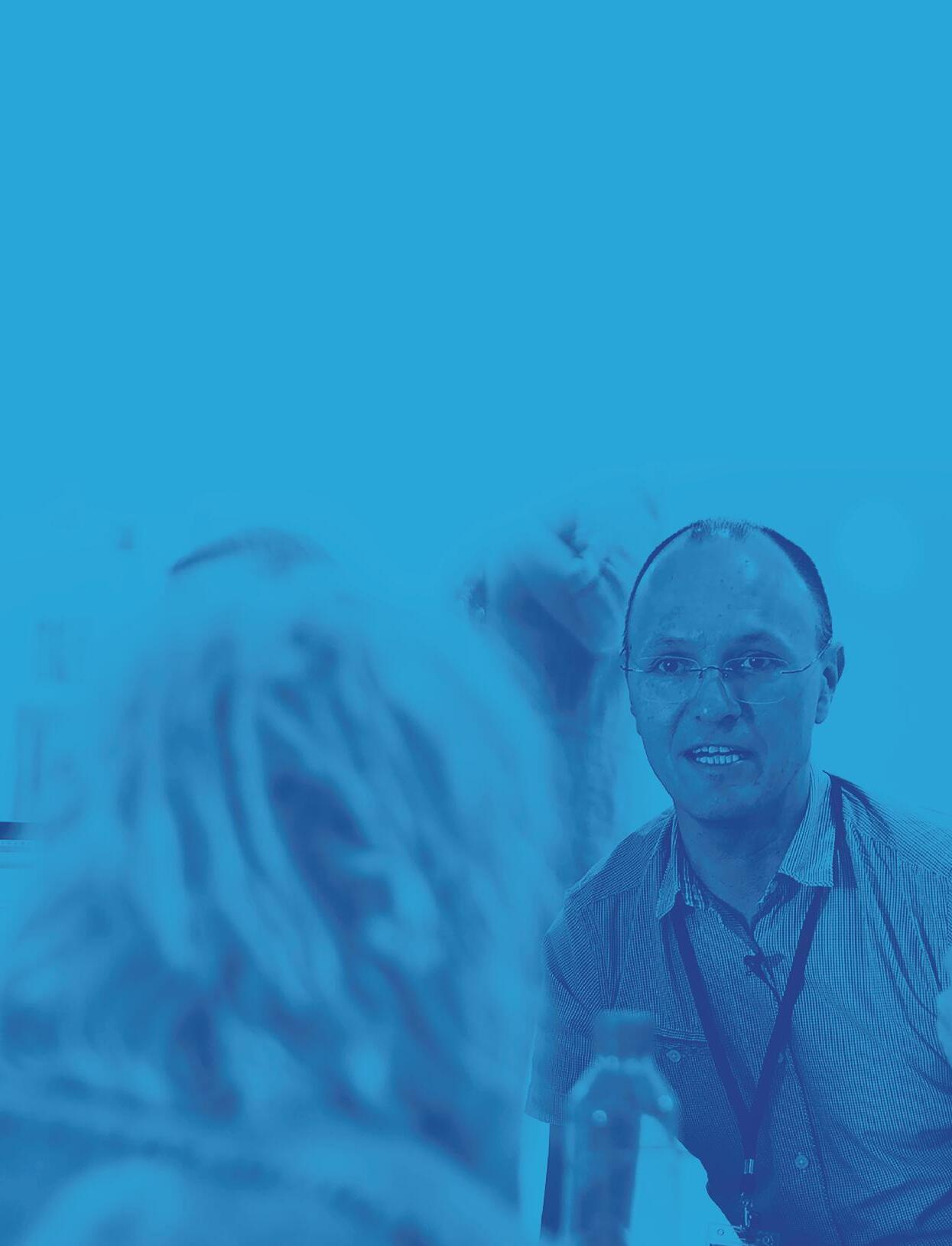
“My Visiting Professor fellowship from DDA has enabled me to live in Denmark for a total of six months. These visits have led to multiple productive research partnerships and new publications. I have also been able to join Danish research collaborations and help with successful grant applications. Further, I have had the opportunity to participate in both face-to-face and web-based teaching sessions across Denmark. As a direct result of my DDA links, a young Danish clinician researcher is now planning a visit to my clinic and research unit”
David McIntyre, Professor, University of Queensland
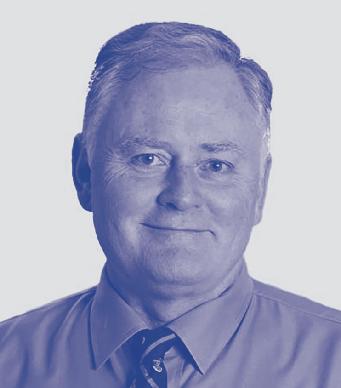
DDA has been successful in unifying the Danish diabetes research environment in one organization supported by all major universities, university hospitals, research centres and specific research groups in Denmark. Over 5,300 master’s students, national and international PhD students and postdocs, as well as basic and clinical researchers from academia and the life science industry have participated in the various DDA events. The number of national and international researchers signing up for DDA membership has reached over 1,200.
The PhD Network of Diabetes and Metabolism originates from the Danish PhD School of Molecular Metabolism. The PhD Network, which to date is the largest in Denmark, is managed by the Education Committee of DDA and is a joint venture between relevant PhD programmes (or relevant representatives) from the respective PhD schools at Danish universities, thus ensuring that DDA courses meet the requirements and standards of the universities.
DDA has allocated 47 national and international postdoctoral fellowships filling the existing gap between PhD positions and senior positions. To strengthen the postdocs’ profile, DDA has, besides its scientific seminars and symposia, annually offered a number of transferable skills courses, such as research management, presentation skills, an innovation course, and fundraising courses. Moreover, DDA has allowed the postdocs to be responsible for the scientific programme of the annual Winter School in Malaga, which has been a huge success.
“Looking back at the mere five years Danish Diabetes Academy has existed, it is obvious that very much has been achieved in this very short time frame. Most importantly, the postdoc programme of DDA was perfectly timed to assemble a group of gifted medical doctors who had just graduated from their PhD programme. Instead of following their colleagues into clinical fellowships, this group of medical doctors continued in science, and are now much better positioned to be the next generation of clinical researchers”
Niels Jessen, Professor, Aarhus University
DDA has arranged at least four major seminars and symposia annually, aiming to improve knowledge of diabetes research in Denmark and to introduce the latest achievements within diabetes research and treatment. The target groups are national and international junior and senior researchers in basic and clinical diabetes research within the public and private sectors. Overall, over 50% have been internationally acknowledged speakers, bringing a high level of expertise to Denmark. The average score for participant satisfaction with the scientific programme of DDA’s Seminar and Symposium programme during the last five years was 4.6 on a scale from 1 (lowest) to 5 (highest) – the target was 3.5.
DDA has established a collaboration with internationally acknowledged research institutions relating to educational activities: Joslin Diabetes Center, the Banting & Best Diabetes Centre and University of Copenhagen (BBDC-Joslin-UCPH), involving their joint annual meeting, the ’BBDC-Joslin-UCPH Conference’, where DDA is responsible for a training day for young researchers from the three institutions. Moreover, DDA has started a collaboration with the Cambridge Metabolic Network and the German Center for Diabetes Research (DZD) to arrange new PhD courses for young researchers from the United Kingdom, Denmark and Germany.
DDA has allocated 2 full-time professorships and 15 visiting professorships. The professors have been valuable assets in establishing collaboration between national researchers and national and international research groups. Moreover, the professors have been deeply involved in DDA’s educational activities, giving lectures at PhD courses, seminars and symposia, Winter Schools and webinars, and thus contributing to achieving DDA´s objective of providing world-class educational activities.
DDA researchers recruited have been successful as regards scientific publications including primary research articles, reviews, commentaries and editorials. Over 335 publications have so far been published in highly regarded journals, with a high proportion of these publications in high-impact diabetes and endocrinology journals. A relatively high percentage of the publications has a DDA-funded researcher as first author.

“DDA creates a wonderful platform for scientists at all levels to communicate and establish collaboration within different diabetes/metabolism research areas. The PhD programme including the PhD courses are on very high level, and stimulate to gain a broader understanding of diabetes, which strengthen the education of next-generation scientists”
 Rugivan Sabaratnam PhD fellow, University of Southern Denmark
Rugivan Sabaratnam PhD fellow, University of Southern Denmark

Aiming at the highest possible international standards, DDA has held educational activities within: the PhD programme, the seminar and symposium programme, the postdoctoral programme and the professorship programme.
Nearly 3,800 researchers have participated in one or more of our activities.
DDA has arranged up to four residential courses annually, targeted at PhD students at different stages of their 3-year doctoral studies. The courses are embedded in the educational activities of the collaborating universities’ PhD schools and underlying relevant PhD programmes, and are arranged in collaboration with the DDA Education Committee.
The PhD courses have all been fully booked and well evaluated. The average score for participant satisfaction with the scientific programme on PhD courses was 4.1 on a scale from 1 (lowest) to 5 (highest) - the target was 3.5, marked by the dark blue line.
Mean participant satisfaction score 2013
Mean participant satisfaction score 2014
Mean participant satisfaction score 2015
Mean participant satisfaction score 2016
Mean participant satisfaction score 2017
DDA has annually arranged up to seven seminars and symposia during 2013-2017. The events are targeted at both national and international junior and senior researchers in basic and clinical diabetes research, in order to create an intellectual framework for knowledge sharing and professional discussions at the absolute highest international level.
The seminars and symposia have been well evaluated, with an average score for participant satisfaction with the scientific programme of 4.6 on a scale from 1 (lowest) to 5 (highest) - the target was 3.5, marked by the dark blue line.
Nearly 3800 researchers have participated in one or more of our activities.
Mean participant satisfaction score 2014
Mean participant satisfaction score 2015
Mean participant satisfaction score 2016
Mean participant satisfaction score 2017
DDA has arranged up to five activities within the postdoctoral programme annually. Transferable skills courses, such as research management, presentation skills, the innovation course, the fundraising course and the postdoc Winter School in Malaga, have all been well attended and well evaluated. The average score for participant satisfaction with the scientific programme and the content of DDA’s postdoc programme from 2015-2017 was 4.7 on a scale from 1 (lowest) to 5 (highest) - the target was 3.5, marked by the dark blue line.
DDA-funded postdocs have been responsible for the scientific programme of one of DDA’s biggest educational successes: the Winter School in Malaga, which was established in 2015 and has run for three years with more than 300 national and international speakers and postdocs participating.
More than 300 national and international speakers and postdocs participating.
Mean participant satisfaction score 2015
Mean participant satisfaction score 2016
Mean participant satisfaction score 2017
DDA has encouraged DDA professors (full-time professors and visiting professors) to play an active role in the educational activities of DDA, contributing to achieving DDA´s objective of providing world-class educational activities. The professorship programme included lectures on PhD courses, symposia, seminars, workshops, the postdoc Winter School and webinars.
A broad overview of the professorship programme is illustrated below.
Diabetes Challenge
Diabetes Epidemiology
PhD courses
Diabetes and Epidemiology
Seminar
Diabetes and Cancer
Webinars
Gestational Diabetes
Webinars
MicroRNA
Webinars
Genetics and Obesity
Workshop Why is Exercise Good for us
Webinars Type 2 Diabetes from an Epidemiological Perspective
Webinars
Gastrointestinal Dysmotility
Webinars
Adipose
Tissue
Webinars
Diabetes and Depression
Webinars
Diabetes and Self-Care
Behavior


“When I was offered the visiting professorship at DDA, I realized this was my lifetime wish coming true … After discussions with the Danish scientists, I put together plans for a range of comparative analyses between Indian and Danish data. This will give an insight which can come only by comparing very contrasting populations.”
Chittaranjan Yajnik Professor, KEM Hospital Research Centre, Pune, India
“DDA has contributed to a renewal of the traditional format of scientific conferences consisting of a long array of lectures with few questions from the audience. To increase the outcome of these meetings, for the young researchers in particular, DDA has implemented a separate session, where young researchers work in groups to prepare and solve scientific issues proposed by senior experts. This has given the young researchers the opportunity to get to know each other beforehand, and prepared them for the topic
Jens Høiriis Nielsen, Professor Emeritus, University of Copenhagen
of the given meeting”
In 2017, DDA created a new educational concept called ’Diabetes Challenge’, which was implemented at the postdoc Winter School in Malaga.
This concept is established on the basis of three strategic words: Learn, Collaborate, and Create.
The ambition with the challenge concept is to enhance young diabetes researchers’ creativity through solving wicked problems, which ultimately help diabetes patients get better lives.
The introduction to the challenge concept was initiated by Henning Beck-Nielsen. The two challenges and two on-boarding videos were made by Daniel Witte, Aarhus University and Professor Paul Franks, Lund University, and can be viewed at www.danishdiabetesacademy.dk/ pr/diabetes-challenge
The challenge involved eight steps from January to April 2017 as illustrated on the next page.
At the Winter School in Malaga, teams presented the solution to their challenge to a panel of five judges, in five minutes, on nine PowerPoint slides. The panel selected three winning proposals: one for ‘best idea’, one for ‘most promising team’ and one for ‘most visionary solution’.
The 16 solutions to the challenge can be viewed here: www.danishdiabetesacademy.dk/pr/ diabetes-challenge
#1 January: Sign Up
Sign-up for the challenge. Learn about the goals & expectations of the challenge.
#2 January: Connect
Connect with your team & and prepare to learn, collaborate & create.
#3 January: Challenge
Understand your challenge. Learn & understand the process. Understand & discuss the game rules of the challenge.
#5 February: Define
Define and frame the key issues within the challenge. Fill out the preparation poster for Malaga.
#7 March: Pitch
Do a winning pitch of your team’s solution.
Be engaged in the presentation of the other teams.
Discuss how to be the best team and combine your different skills, competences & knowledge.
#4 February: Discover
Discover the small challenges within the big challenge.
Share and select your perspective on the challenge.
Go deep and discover on Google, the literature & YouTube.
#6 March: Create
Build a substantial & creative solution to your challenge.
Prepare your pitch & fill out the pre-written headers in the presentation.
#8 March: Validate
Upload your team’s presentation. Provide online feedback for your fellow teams.
With the aim of establishing itself as a unifying force in Danish diabetes research, DDA has established the following networking and collaboration activities:
• PhD Network of Diabetes and Metabolism
• Large and small networking meetings, such as workshops, formal and informal networking meetings and annual days
1500Nearly 1500 national and international researchers in total have attended DDA’s networking and collaboration activities during 2013-2017.
In 2013, DDA established the Danish PhD Network of Diabetes and Metabolism, which is now the largest PhD network in Denmark. Eight of the nine university PhD schools within health and science are affiliated to this network as illustrated below:
DDA has arranged over 20 workshops in collaboration with national and international research institutions. In addition, DDA has arranged three annual days for DDA researchers and members with the aim of providing an overview of DDA-funded research projects and facilitating networking between all DDA members. Over 80% of the participants said that DDA’s Annual Day had facilitated the establishment of new research relationships that could lead to new collaborations in the future.
20DDA has arranged over 20 workshops in collaboration with national and international research institutions.
Bile-Incretin Microbiome
Diabetes and Technology
Latent Autoimmune Diabetes in Adults
Diabetes and Pregnancy Adipocyte Biology
GlucagonIncretin
Type 1 Diabetes
The Role of Autophagy in Skeletal Muscle in Obesity and Type 2 Diabetes Artery Disease in Diabetes
Lead Consortium DDA Committee Meetings 2013-2017
DDA-BBCCJOSLIN-UCPH Networking Events 2014-2017
Diabetic Wound Healing
DDA-JDRF Networking Events 2013-2016
The ESDIPAN Consortium
Fetal Programming
Individualized Cardiovascular Risk Stratification and Treatment in Diabetic Patients
Psychosocial Support to Young People with Type 1 Diabetes
E-Health in Type 2 Diabetes
Islet Cell Plasticity in Diabetes Therapy
Danish Diabetes Academy
Professorship programme
Postdoc Receptions 2013-2015
Young researchers discussion EASD 2013-2017
Annual days 2014-2016
Why is Exercise Good for us, Complementing Genetics for Better, Metabolic Regulation
Science in Region South Denmark –Career Paths in Science
MicroRNAs in Metabolism
Annual Meeting of North European Young Diabetologists
Career Learning in Science Subjects
In addition to the workshops, DDA has held a series of formal and informal networking meetings with the overall objective of bringing together DDA’s young scientists in formal and informal settings with national and senior researchers.
Danish Muscle Metabolism Network Workshop Bring Health Data into Action
Formal and informal networking meetings
Large and small networking meetings

“For me personally DDA has been a fantastic platform for networking with national and international colleagues in the field. This has been extremely valuable for the development of my research. But perhaps even more importantly, DDA has provided my PhD students with unique opportunities to meet and exchange ideas with fellow students in the broader field of diabetes research and to network with world class senior scientists in the field”
Susanne Mandrup, Professor University of Southern Denmark

“I would argue that DDA currently trains some of the most talented young diabetes researchers and also provides them opportunities as a platform to pursue dedicated careers in diabetes research. I expect that their future research endeavours will eventually beat this debilitating disease”
Professor Christopher Rhodes, MedImmune, USA
DDA has established a strong international profile within all three focus areas: Education, Networking and Grant activities.
DDA´s PhD Summer School and postdoc Winter School in Malaga both have a very strong international profile, with a majority of those invited to give lectures and run workshops being leading international scientists. This set-up has already led to documented collaboration, sabbaticals and publications between DDAfunded PhD students and postdocs and international research groups. In addition, DDA has recently established a PhD course collaboration with both the German Center for Diabetes Research, Germany, and the Cambridge Metabolic Network, UK. The PhD courses are aimed at giving junior DDA researchers a better opportunity to internationalize their education.
DDA has within the last three years established a strong collaboration with Joslin Diabetes Center, USA, and the Banting & Best Diabetes Centre, Canada. This collaboration has resulted in an annual DDA networking and training day for young researchers from Joslin, Banting & Best and Denmark, respectively. Moreover, DDA collaborated with JDRF, resulting in workshops and recruitment of talented international postdocs.
DDA has recently established a formalized networking collaboration with the German Center for Diabetes Research with the intention of bridging between researchers from Denmark and Germany. In addition, DDA has arranged numerous workshops with international researchers and research institutions, including the Cambridge Metabolic Network. These workshops have also resulted in documented collaboration, sabbaticals and publications between Danish and international researchers.
DDA has allocated 2 full-time professorships to acknowledged researchers from abroad, and 15 visiting professorships to acknowledged researchers from Europe, the USA, India and Australia. All the professors have played an active role in DDA’s educational activities, including PhD courses, winter schools and webinars. Further, the professors have been involved in arranging workshops across Denmark and thereby facilitated new research collaborations between Danish and international research groups, and opportunities for sabbaticals for young Danish researchers. DDA has also succeeded in attracting almost 40% of the postdoctoral candidates from abroad. Through these young international researchers, DDA has established contacts with international research institutions and networks, which has led to exchange of young students on educational activities.
DDA has aimed to allocate research funding to outstanding PhD students, postdocs and professors (full-time professors and visiting professors) in open and free competition.
Out of the 151 research grants, DDA has allocated the majority (88%) to young reserachers (PhD fellows and postdocs).
1.3%
Funded PhD Students
Funded Visiting Professors
Funded Postdoctoral Fellows
Funded Professors
9.9%
31.1%
57.7%
In the period 2013-2016, DDA allocated 87 1/3-financed PhD scholarships. In general, DDA receives more applications from candidates with a science degree background, which is also reflected in the funding profile, where almost 65% of PhD funding has gone to applicants with a science degree.
Most of the 1/3-financed PhD scholarships are allocated to faculties of health sciences (77%), and 45% of the grants are allocated to applicants from the Faculty of Health Sciences at University of Copenhagen
A list of grant recipients can be found at www.danishdiabetesacademy.dk/grants/grant-recipients and in our annual reports.
Two DDA-funded PhD fellows defended their PhD thesis in 2016, and 15 have defended, or will defend, their PhD thesis in 2017. Of these PhD graduates, 23% are now working as postdocs at different universities, 17% are working in the life science industry, 23% are working as research assistents at different research institutions, and 35% are working as medical doctors or are self-employed.
In the period 2013-2017, DDA allocated 47 postdoc grants. The majority of the postdoctoral fellowships were fully financed three-year grants (38), whereas the numbers of five-year (JDRF collaboration), two-year, and one-year fully financed grants were one, three and five, respectively. DDA receives more applications from candidates with a science degree background, which is also reflected in the funding profile, where almost 75% of postdoc funding has gone to applicants with a science degree.
Most of the postdoctoral fellowships are allocated to research institutions in Copenhagen (University of Copenhagen, Technical University, Statens Serum Institute and university hospitals), and to research institutions in Aarhus (Aarhus University and Aarhus University Hospital), which is also reflected in the fact that most of the applications are from these institutions.
DDA has succeeded in attracting almost 40% of the postdoctoral candidates from abroad, which indicates that DDA’s postdoctoral programme is attractive
Out of the 47 granted postdocs, 29 have to date either finished their postdoc project or resigned their postdoc position in favour of another research position. The majority of DDA funded postdocs are today employed in research positions (Postdoc, Assistant -or Associate Professors) within academia (48%), while 25% are employed in the Life Science –or Dairy & Food industry.
% of DDA postdocs from Denmark
% of DDA postdocs from Asia
% of DDA postdocs from EU countries (minus Denmark)
% of DDA postdocs from Australia/ USA
Life Science Industry
Dairy & Food Industry
Postdoc/ Assistant -or Associate Professor
Medical Doctor and Research
Others (Medical Doctor, Consultants)
USA
Anandwardhan A. Hardikar, Sydney, Australia

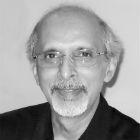
Harold David McIntyre, Brisbane, Australia


James D. Granneman, Detroit, USA



Ruth Loos, New York, USA
Timothy Skinner, Darwin, Australia
Venkat Narayan, Atlanta, USA
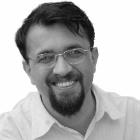
UK
Spain
Norway Germany
Italia
Israel
Yajnik Chittaranjan Sakerlal, Pune, India
Geltrude Mingrone, Rome, Italia
Rebecca Simmons, Cambridge, UK

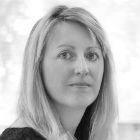
Adam (Donald) Farmer, London, UK
Antonio (Luis) Cuesta (Muñoz), Malaga, Spain
Ari Meerson, Kiryat Shmona, Israel


Bart Roep, Los Angeles, USA
Cora Weigert, Tübingen, Germany

Jørgen Jensen, Oslo, Norway
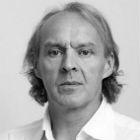

DDA has allocated two full-time professorships and 15 visiting professorships.
The full-time professors are appointed as professor at the Department of Public Health, Aarhus University (Daniel Witte) and the Functional Genomics & Metabolism Research Unit, Department of Biochemistry and Molecular Biology, University of Southern Denmark (JanWilhelm Kornfeld).
The 15 visiting professorship grant recipients come from nine different countries and are affiliated with research institutions in Aalborg, Odense and Copenhagen.

“Talent development is one of the most remarkable contributions of the DDA to diabetes research. By setting up a collaborative network with key partner institutions and researchers, DDA encourages forefront knowledge transfer along the spectrum of diabetes research”
Jose Omar Silverman Retana PhD fellow, Aarhus University
“It has been a great pleasure to be a member of DDA the last couple of years, as the courses, congresses, symposiums and other events have been very well organized, academically rewarding and a great opportunity to present my research. Furthermore, DDA events have given me a great opportunity to network with young and senior researchers, which has contributed to collaborations in Denmark but also internationally”

Louise Lang Lehrskov PhD student, University of Copenhagen
Publications
DDA-funded researchers have between year 2013 and year 2017 published a total of 337 publications in peer-reviewed journals, as shown in the figure above. Publications include primary research articles, reviews, commentaries and an editorial.
A bibliometric analysis was performed.
All journals included in Journal Citation Reports (JCR) are assigned to categories according to subject (e.g. the subject category Endocrinology & Metabolism).
The journals in each category can be ranked by journal impact factor (JIF), and each subject category can be divided into quartiles.
The analysis shows that of the articles published by DDA-funded researchers in peer-reviewed, JCR-indexed journals, 71% (the aim was 50%) were published in journals ranked in quartile 1 (Q1), 19% in Q2, 9% in Q3 and 1 in Q4.
The mean Journal Impact Score for all publications is 5.1 (range 1.3 – 44) and has increased in the period from 2015-2017. First-author
Nearly 36% of the published articles had a DDA-funded researcher as first author.
“Typically, when you participate in conferences, you hear the talks of leading scientists. At DDA meetings, you get to discuss your research with them in casual surroundings, join them for a cup of coffee or sit next to them during dinner – without feeling like an inexperienced novice. I most definitely believe that participating in these activities and the feeling of belonging to the community has fuelled a ‘team spirit’ among upcoming diabetes researchers”
Rikke Hjortebjerg, PhD fellow, Aarhus University
“ Seen from my perspective and area of research (pregnancy and foetal programming), DDA has resulted in an explosion in the number of Danish publications, research collaborations and educational activities”
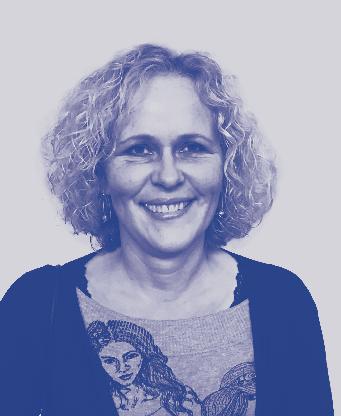

Professor Dorte Møller Jensen, Consultant, Odense University Hospital

DDA’s outreach activities include educational and networking activities (presented earlier in this report) and attendance at international and national conferences, but also the use of various media and online communication channels for dissemination of both research information and information in general.
The following online channels have been used for communication about DDA’s events, research news and grant proposals: social media (Facebook and LinkedIn), and the DDA website (www.danishdiabetesacademy.dk).
Finally, DDA also sends out a twice- monthly newsletter by e-mail to all DDA members and other interested researchers.
From 1 January 2013 to 31 December 2017:
The number of members of DDA: 1200
The number of subscribers to DDA newsletter:
1219*
The number of followers on LinkedIn:
688
The number DDA has been mentioned in the public media: 313
The number of followers on Facebook:
680
*including 307 newsletter subscribers who are not members of DDA
“I summarize my experience from DDA in three words: support, encouragement and enthusiasm. Since I started a DDA-funded postdoc at DTU in 2015, being a member of DDA has been a great scientific adventure for me, full of learning and joy. Talking from my experience, DDA has been successful in incubating young researchers to pave their career path in diabetes research.”
Kolofon
Danish Diabetes Academy
– Empowering Diabetes Science / The First 5 Years
Responsible editor: Tore Sønne Christiansen, Managing Director
Editors: Kirsten Bohl and Kristine Melgaard Michailidis
Translation: Dansk oversættelses- og sprogservice
Layout: OddFischlein ApS
Printed at: We Produce
ISBN: 978-87-996346-8-2
Published by:
Danish Diabetes Academy
Odense University Hospital
Sdr. Boulevard 29
Entrance 112, 3rd floor
DK-5000 Odense C
www.danishdiabetesacademy.dk
Zeniab Mahmoudi, Postdoc, DTU Compute
“DDA has managed to bridge the gap between the universities, the hospitals and the pharmaceutical industry and hereby inspire to common projects. Although we all aim to increase the understanding of the aetiology, pathogenesis and treatment of diabetes, students often tend to focus on their own little project and not recognize the value of knowledge sharing and connecting across disciplines and borders. With financial support from DDA, part of my research was carried out abroad, and the stay provided experiences valuable to both my project and my career. Most importantly, all my collaborators have strengthened my ability to “look beyond” my own research area, and my thinking has been constructively challenged by (great) minds that think alike and, sometimes, not alike at all.”
Rikke Hjortebjerg, PhD fellow, Aarhus University“One of the great pleasures of attending DDA events and meeting the many new students and postdocs is that you always leave with an unshakeable feeling that the stars of the future will emerge from this pack”
Henning Beck-Nielsen, Chairman of the Board, in Annual Report 2014
Danish Diabetes Academy